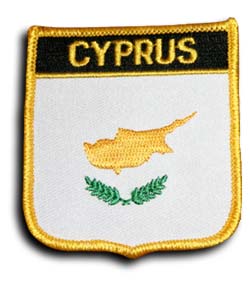Cypriot leaders continue talks on settlement and property issues
 Athens/Nicosia - Rival leaders seeking a solution to reunify the divided Mediterranean island of Cyprus focused talks Wednesday on the complex issue of seized property.
Athens/Nicosia - Rival leaders seeking a solution to reunify the divided Mediterranean island of Cyprus focused talks Wednesday on the complex issue of seized property.
Special Representative of the UN Secretary General Taye-Brook Zerihoun told reporters that Greek Cypriot President Dimitris Christofias and Turkish Cypriot leader Mehmet Ali Tatat will continue talks on March 5 and after that they will move on to discuss European Union matters.
On the property issue, Zerihoun said the leaders started exchanging views on the principles that will guide the discussions and for the past two meetings they have been discussing the criteria to define the parameters under which this discussion will continue.
"After that they will make a decision whether those discussions could continue in other fora," Zerihoun said.
Despite the enthusiasm that greeted a new round of UN-led direct negotiations in September following a four-year stalemate, weekly talks between Christofias and Talat failed to produce a breakthrough in 2008.
Although a settlement has been thwarted for decades, mediators are optimistic that Christofias and Talat will broker a deal within the year. Any deal will need to be approved by Cypriots in separate, simultaneous referendums.
The eastern Mediterranean island has been split since 1974 into a Greek Cypriot south and Turkish Cypriot controlled north. Turkey invaded the northern third of Cyprus in response to a short-lived coup initiated by the military junta then ruling Greece.
At the time, 160,000 Greek Cypriots and 40,000 Turkish Cypriots were uprooted from their settlements and forced to seek shelter in opposite ends of the island.
This has led to property disputes where thousands of individuals stake a claim to land and homes seized decades ago.
Ankara still maintains more than 35,000 troops in the northern part of the island and refuses to normalize ties with the internationally recognized Republic of Cyprus, a member of the European Union.
Since then, countless efforts by the United Nations to find a solution have failed, most recently when former president Tassos Papadopoulos led the Greek-Cypriot rejection of a UN reunification plan in a 2004 referendum.
Turkish Cypriots had voted overwhelmingly in favour.
Following the election of Christofias last February, in which he ousted hardliner Papadopoulos, immediate steps were taken by both sides to relaunch full-fledged peace talks.
The two sides have agreed in principle to a settlement based on a federation, but the Turkish Cypriots want a loose federation, while the Greek Cypriots want a stronger central government and more limited regional powers which will prevent the island falling back into partition.
There is disagreement on whether a bi-zonal federation would permit free movement or try to enforce the ethnic majorities in the north and the south.
The ongoing conflict in Cyprus also threatens Turkey's aspirations of joining the EU. Ankara started EU entry talks in 2005, but the Cyprus problem has proved one of the main stumbling blocks in negotiations. (dpa)